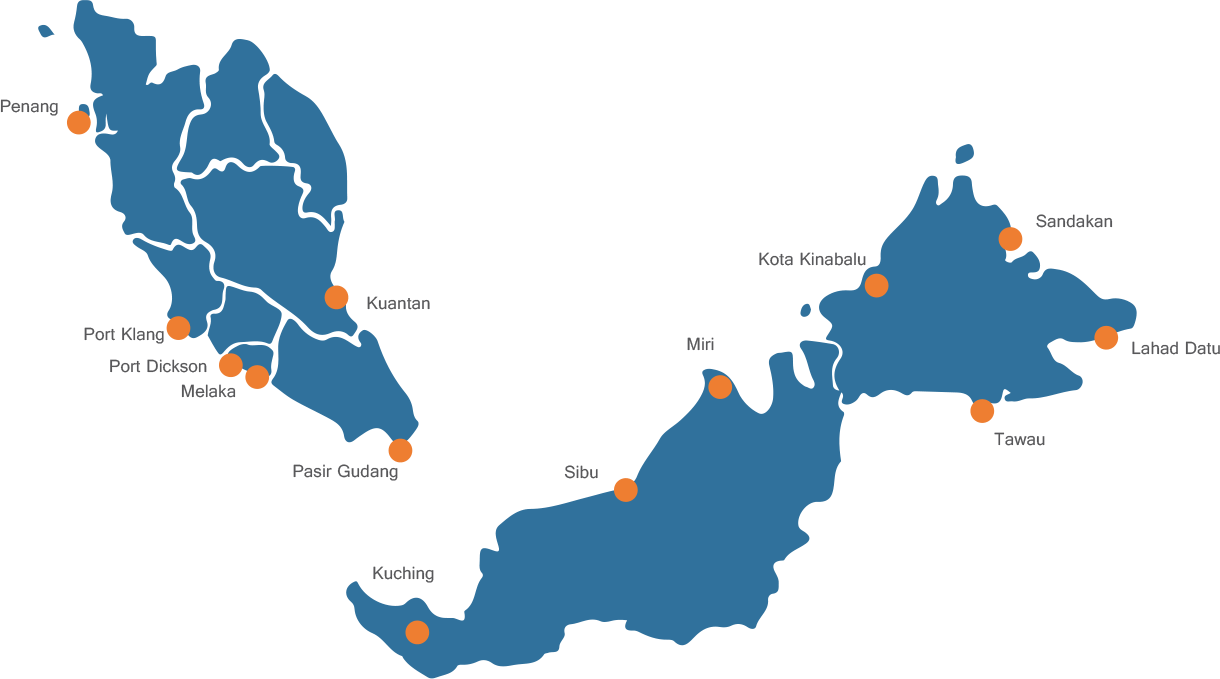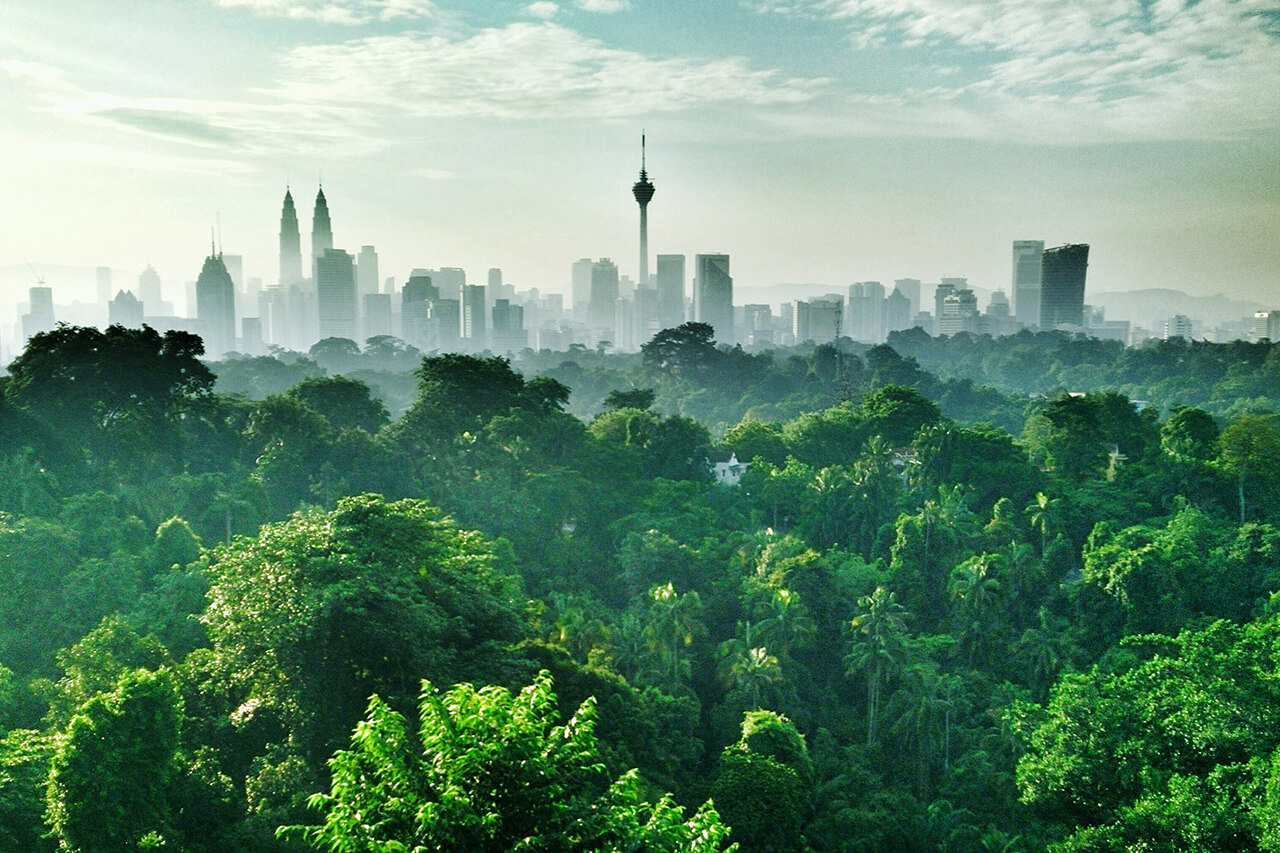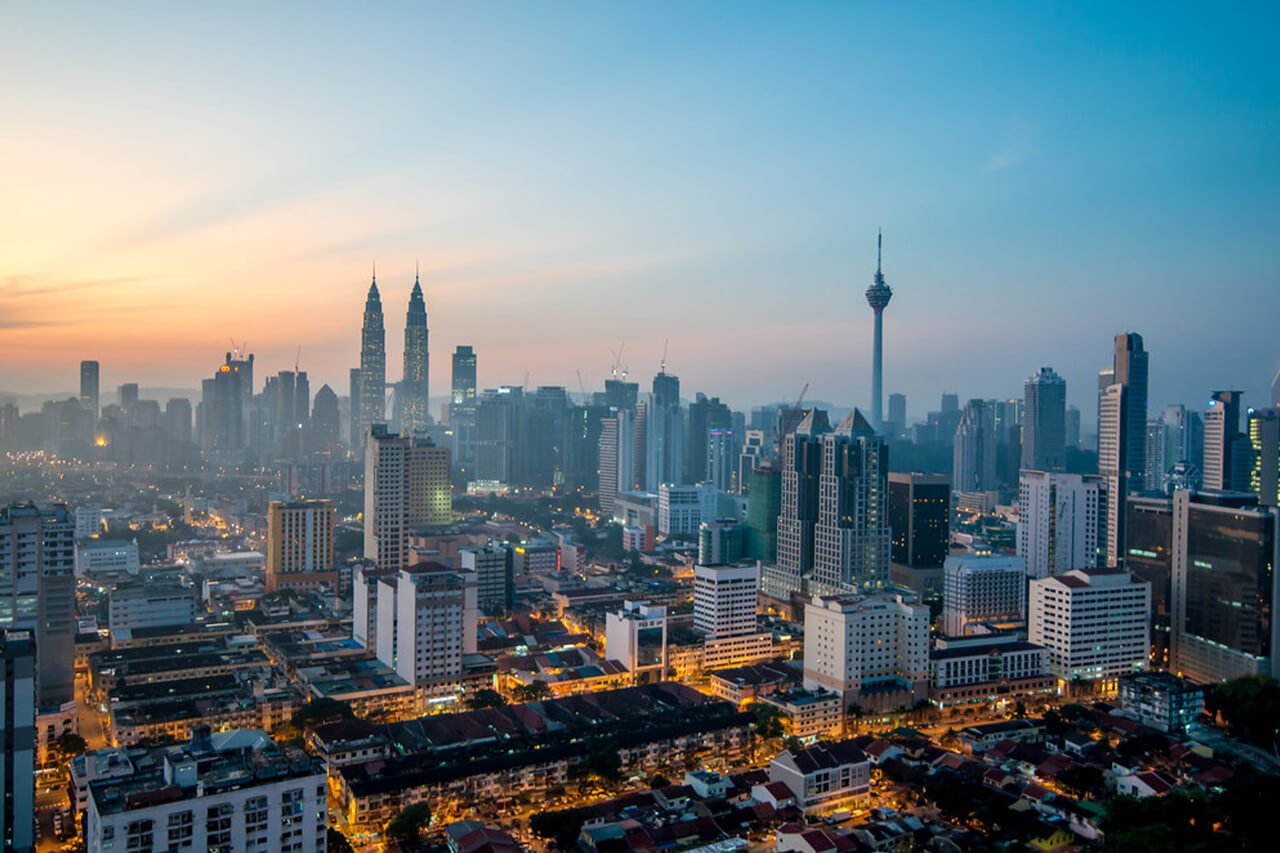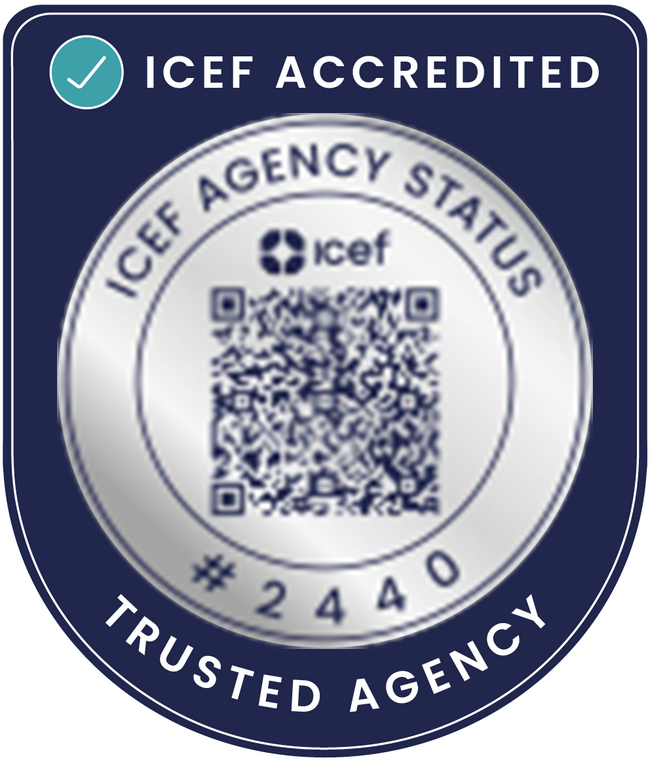Study in Malaysia
Location and Geography
The Federation of Malaysia, in total about the same size (329,750 square kilometres) as the U.S. state of New Mexico, is in Southeast Asia and comprises two regions: Peninsular Malaysia (11 states) and the Island of Borneo (which includes two states, Sabah and Sarawak). The South China Sea separates the two regions. To the north of Peninsular Malaysia is Thailand, and to the south, Singapore. Indonesia surrounds Sabah and Sarawak, and the latter shares borders with Brunei as well. The landscape ranges from coastal plains to hills and mountains, as well as lovely sand beaches. Trees cover nearly three-quarters of the total area. The capital city is Kuala Lumpur.
Five Quick Points About Malaysia
Known as one of the safest, most tolerant, easiest to manage countries in Asia
Beautiful, diverse scenery, from forested mountains to white sand beaches
Surprisingly low cost of living, affordable education, and good quality of life
Excellent, internationally recognised education system and qualifications
Multicultural, vibrant environment for international students from more than 150 countries

Climate
Located near the equator, Malaysia experiences a tropical climate. While it can get very humid (with monsoon seasons) it never gets extremely hot – average temperatures are from 20° to 30°C.

Economy
The Malaysian economy is known for its relative stability and general growth track. After an economic boom in the 1970s, Malaysia diversified successfully and transitioned from being a mainly raw materials producer to a top exporter of manufactured goods, earning it the designation “newly industrialised country.” It is a significant producer and exporter of palm oil and rubber; crude petroleum and liquefied natural gas; cocoa and pepper; apparel; and timber and wood products. Major markets for Malaysian exports are Singapore, the U.S., Japan, and China. The currency is the Ringgit.
Living Conditions and Cost of Living
The cost of living in Malaysia is exceptionally low for a newly industrialised country. Housing/renting, food, and eating out are very reasonable, and taxes are relatively low. The average Malaysian spends around 150 Euros every month on food.
The website Study Malaysia notes that Kuala Lumpur city was rated the least expensive city in the world in terms of food, electronic goods, clothes, public transport, hotel rates and entertainment for Western visitors, in a recent survey of 71 cities worldwide by the Swiss banking giant UBS.
The living standard in Kuala Lumpur (KL) is in general quite high. Malaysia has a good health care system, good hospitals, good international schools, excellent highways, and modern communication systems.


Education System
Education is a priority for the Malaysian government. The website Study Malaysia notes that:
“The 9th Malaysian Plan (9MP) from 2006 to 2010 has placed great importance on education, training and lifelong learning. In line with greater focus on human development under 9MP, a total of RM40.3 billion (about 21% of the total budget allocation) has been allocated for the expenditure of education and training development.”
The Education Act 1996 covers pre-tertiary levels of education under the national education system, which comprises pre-school, primary, and secondary education as well as post-secondary education. Primary and secondary education are free to students in Malaysian government schools.
Another six acts regulate the provision of higher education in Malaysia. The Minister of Higher Education controls all tertiary education. There are two types of tertiary education in Malaysia: government-funded and private higher educational institutes.
Most private higher educational institutions teach courses in English. However, while most post-graduate courses at public universities are taught in English, most bachelor’s degrees at public universities are taught in Bahasa Malaysia.
The legal regulatory frameworks that support the provision of education in Malaysia are The Private Higher Education Institutions Act 1996, The National Council on Higher Education Institution Act 1996, The Malaysian Qualifications Agency Act 2007, The Universities and University Colleges (Amendment) Act 1996, The National Higher Education Fund Corporation Act 1997, The MARA Institute of Technology (Amendment) Act 2000, and The National Higher Education Fund Corporation (Amendment) Act 2000.
Information Specific to International Students
To study in Malaysia, international students should apply directly to the institution they would like to attend; student counsellors can help students assess whether this school is licensed and approved by the relevant regulatory bodies of the Malaysian government.
International students coming to Malaysia must obtain a student pass. This is done by applying and being accepted to the institution of choice. It normally takes three to five weeks to obtain the student visa approval. Before purchasing flights, students should check with the Malaysian High Commission/consulate in their home countries about whether they need a visa to enter Malaysia along with the Student Pass approval letter. If they do need one, they should proceed to the nearest local Malaysian diplomatic mission (i.e., Malaysian High Commission Consulate) and show them the approval letter to obtain their single-entry visa. The student approval letter is usually valid for three months from the date of issuance.
International students can work part-time in Malaysia under strict guidelines whereby they can work only during semester breaks for a maximum of 20 hours a week. Only certain workplaces are permitted (for more information, contact Malaysian immigration). All applications to work must be approved through Malaysian Immigration.
Start Your Journey in
Malaysia Today!
Unlock a world of opportunities with affordable education, vibrant culture, and stunning landscapes. Apply now to study in Malaysia and experience a high quality of life in a multicultural environment.

